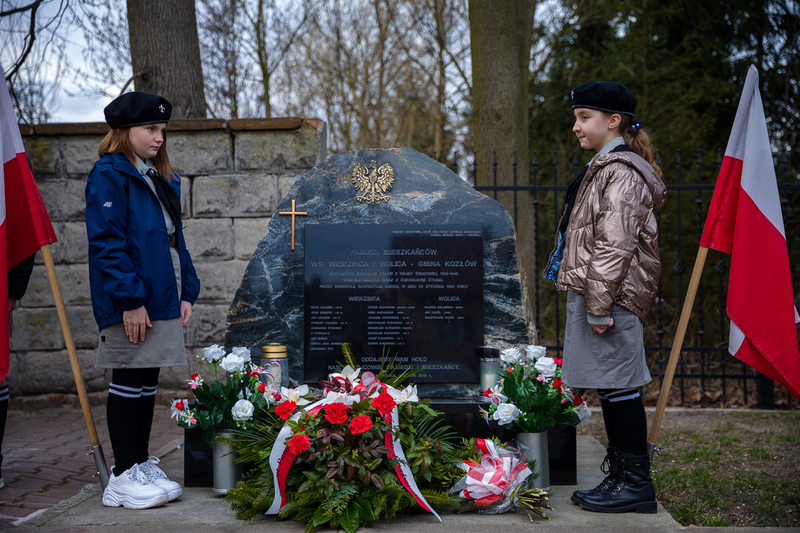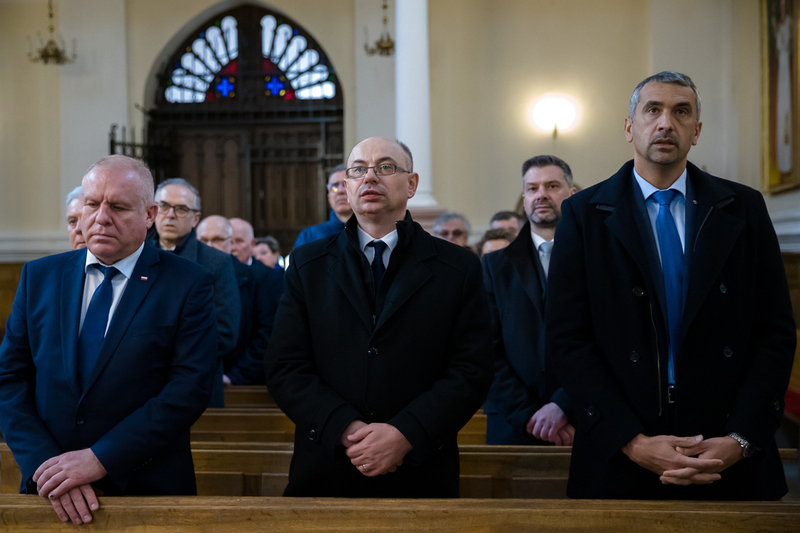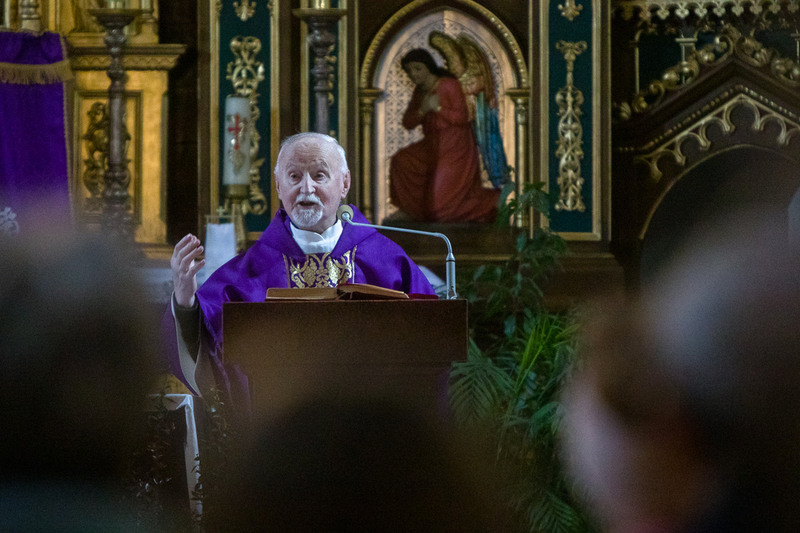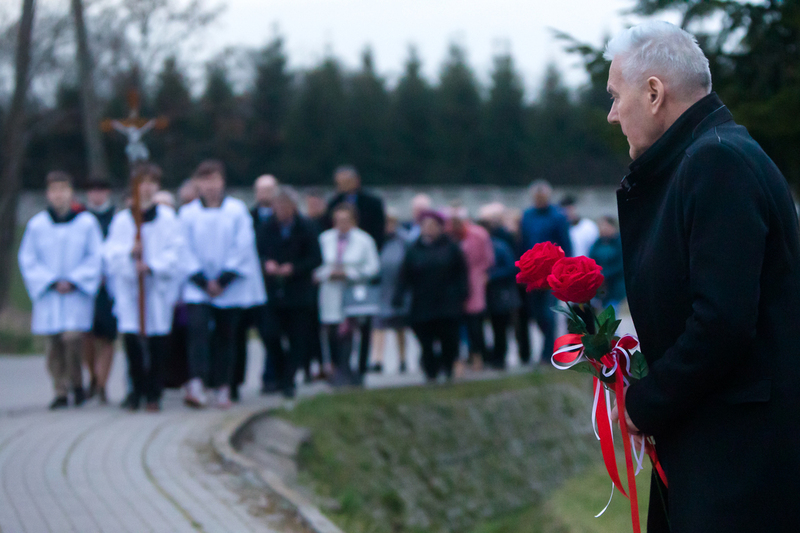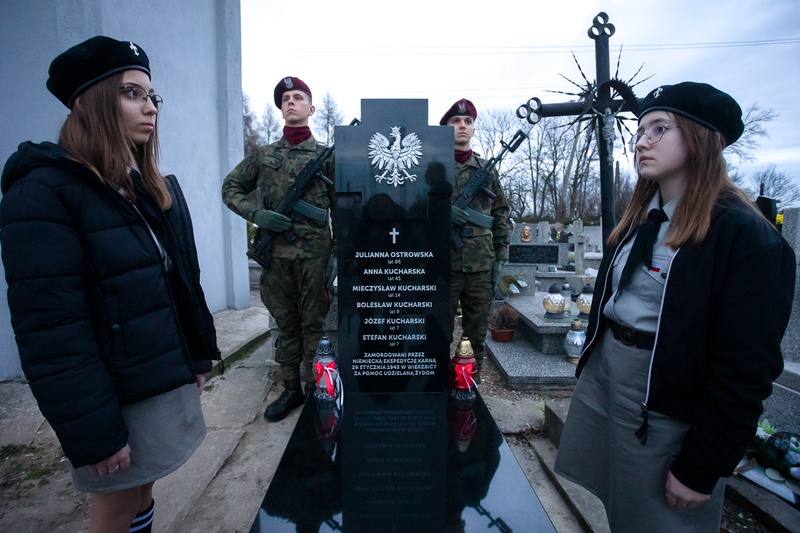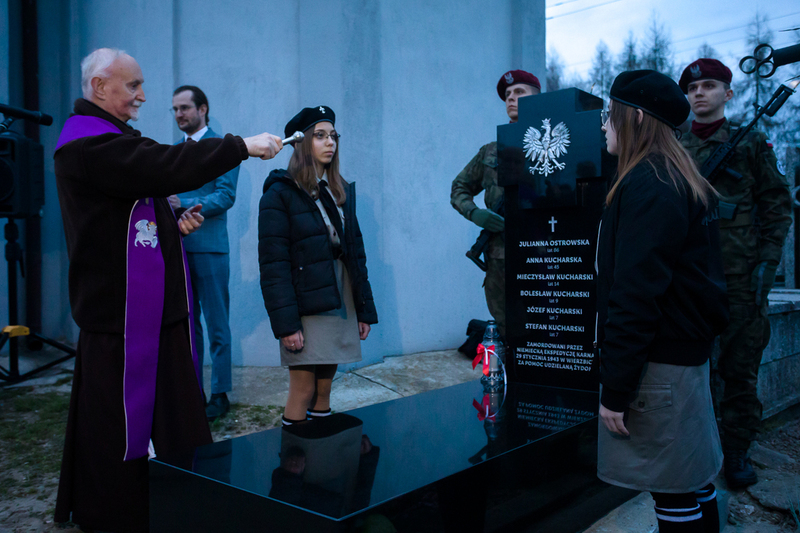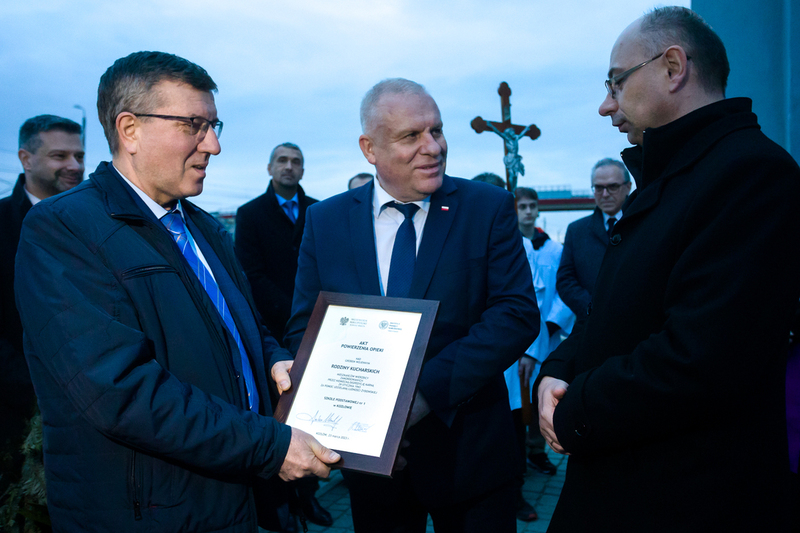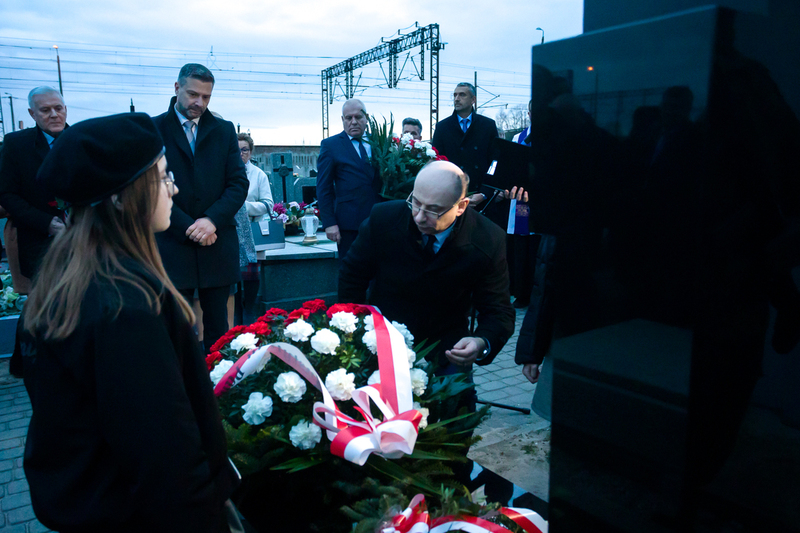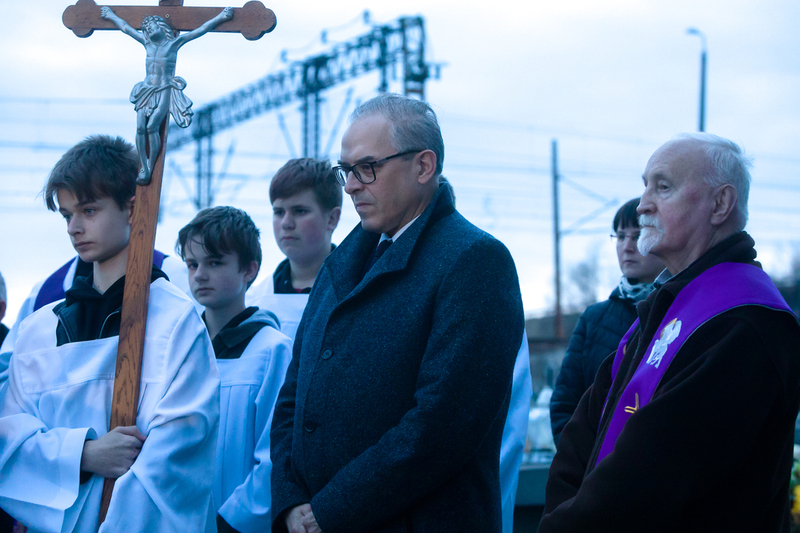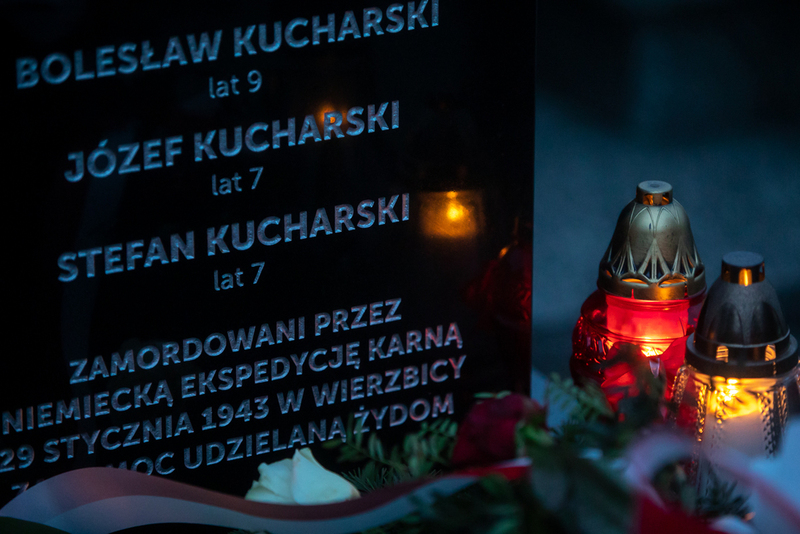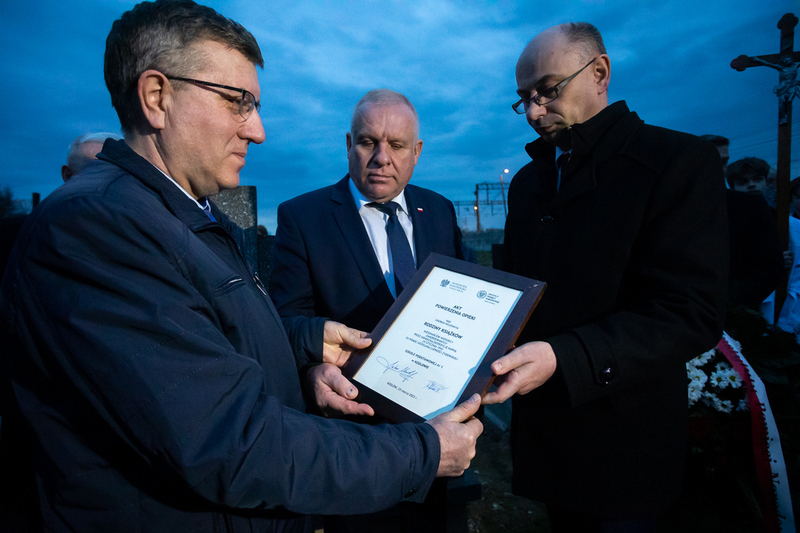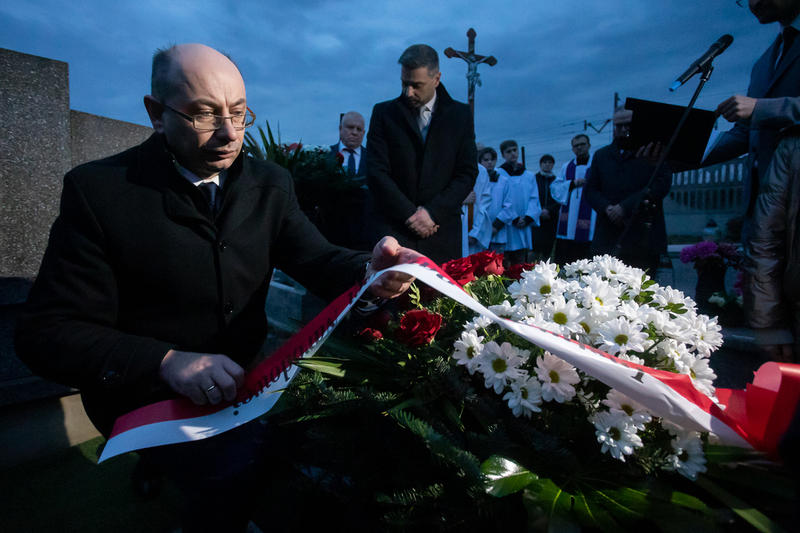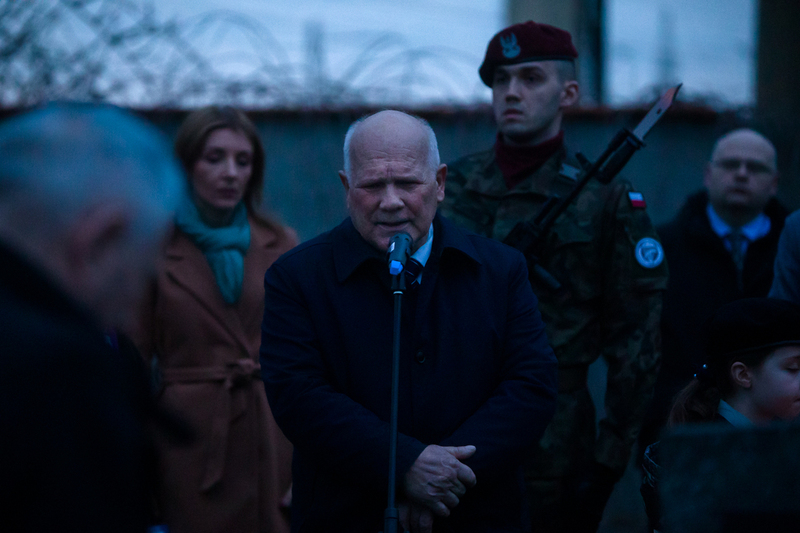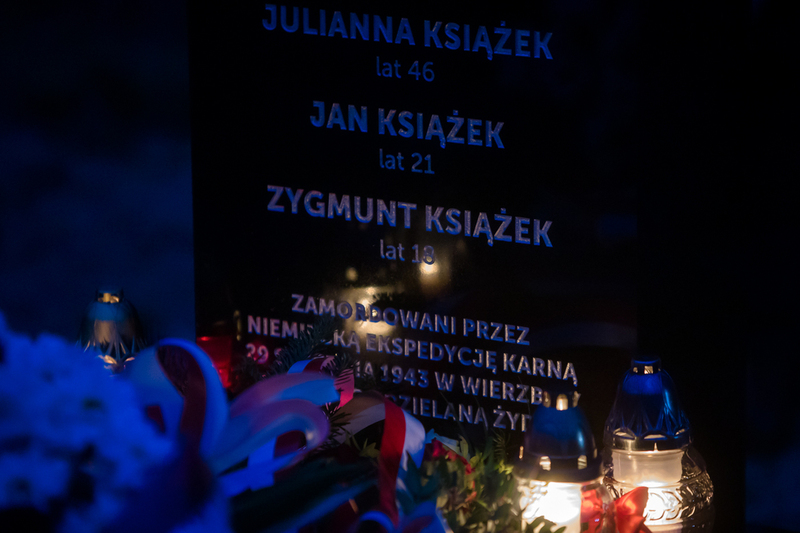The Kucharski and Książek families, who were killed on 29 January 1943 by a German punitive expedition in the villages of Wierzbica and Wolica, were honored in Kozłów near Cracow. The celebrations began with a holy mass at the Church of Elevation of Holy Cross in Kozłów. After the service, the chaplain of veterans, Father Jerzy Pająk from Cracow, consecrated new tombstones of the Kucharski and Książek families, funded by the Institute of National Remembrance, at the local cemetery. On behalf of the families of the victims of the German crime, Piotr Książek, the grandson of Piotr Książek, who was murdered in Wierzbica, gave a speech to express gratitude to the IPN.
The ceremony was attended by the IPN Deputy President Mateusz Szpytma, Ph.D., Deputy Senate Speaker Marek Pęk, Deputy Governor of Małopolska Ryszard Pagacz and other officials.
Their graves bear not only a cross — a sign of faith — but also a white eagle, the symbol of our state. Why is this symbol placed there? Because helping Jews was part of the mission of the Polish Underground State supported by the Polish government-in-exile, said M. Szpytma.
Director of the IPN Branch in Cracow Filip Musiał, Ph.D. and Head of the Branch Office for Commemorating the Struggle and Martyrdom Maciej Korkuć, Ph.D. laid flowers in Wierzbica — at the site where the Germans killed the Książek couple, their two sons and two Jews they were hiding.
The Kucharski and Książek families, along with several others, helped Jews hiding in the villages of Wierzbica and Wolica. On 29 January 1943, armed German officers entered the houses indicated by a Volksdeutsch Kazimierz Nowak and murdered all people they found there. Soon the Home Army soldiers on behalf of the Republic of Poland executed a death sentence on Volksdeutsch Nowak, charged for numerous crimes against Poles and Jews. He was mortally wounded and died in a hospital in Miechow.
